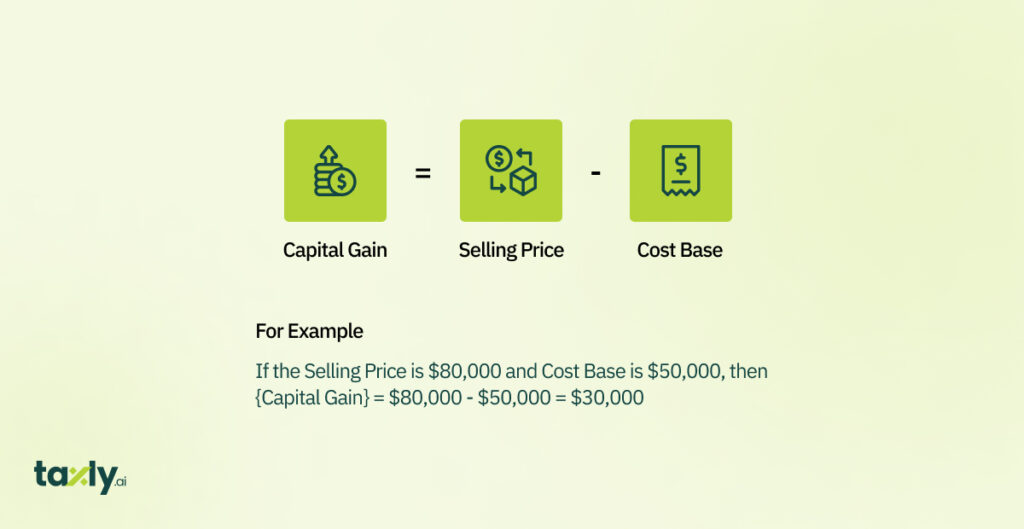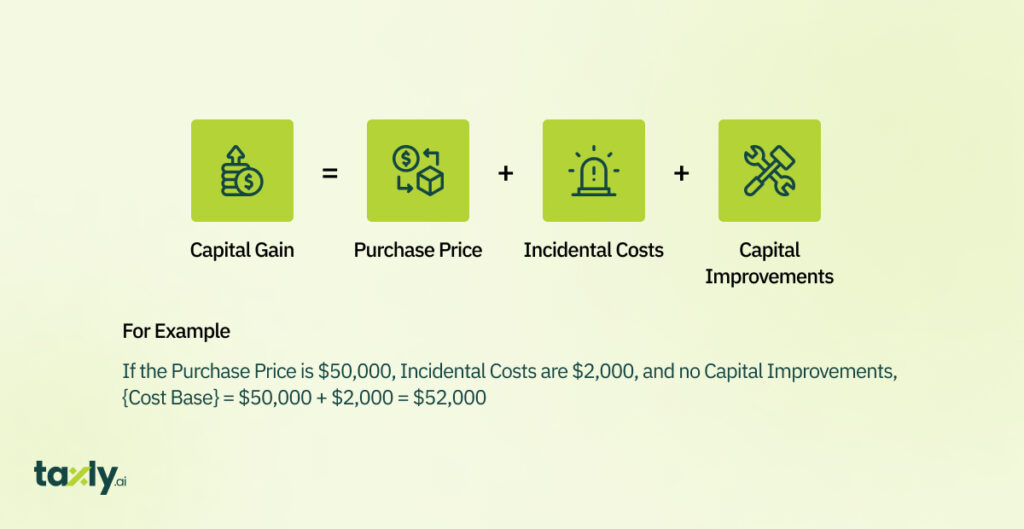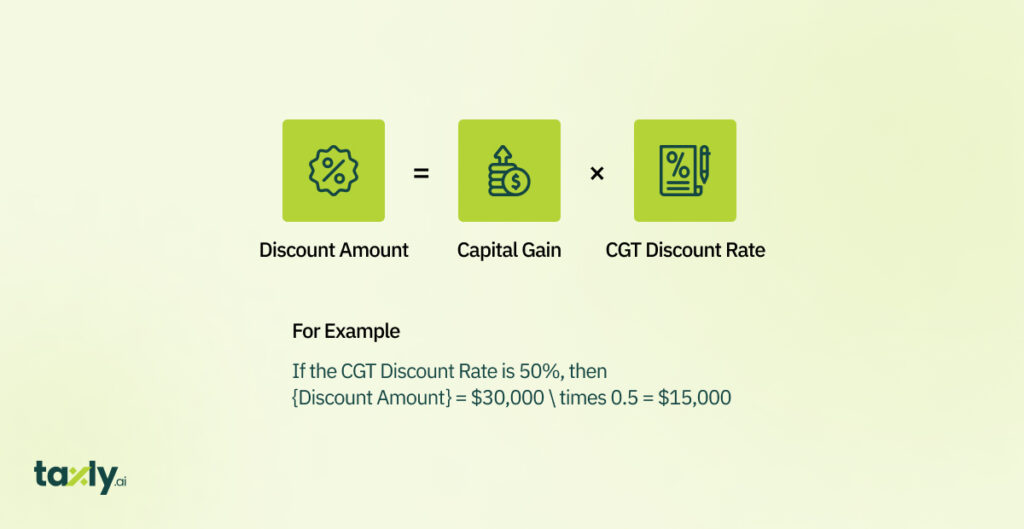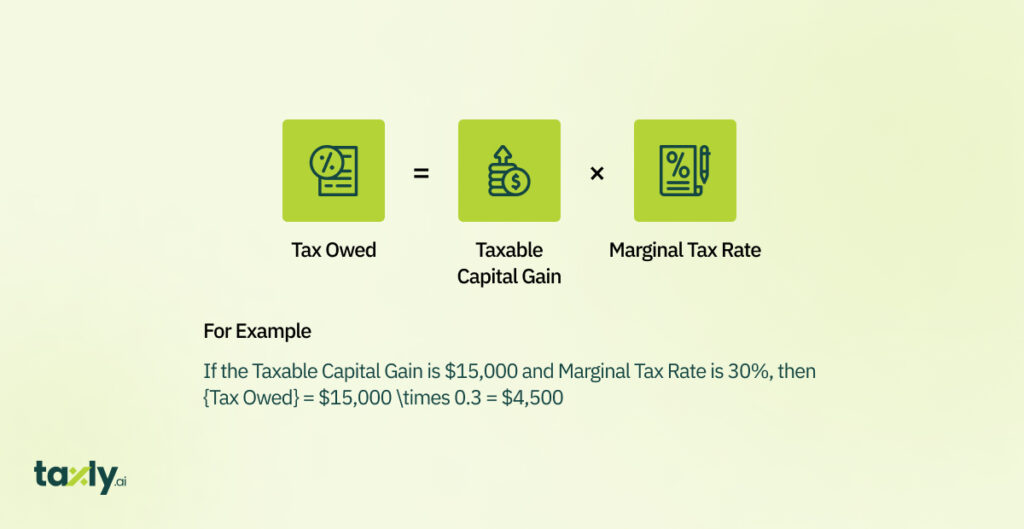Did you know that when you sell assets, there’s a tax bill waiting for you?
Capital Gains Tax (CGT) is applied to profits made from asset sales in Australia. It is not a separate tax but is part of the income tax system. When you dispose of an asset and make a capital gain, you may be required to pay tax on that gain.
Key Takeaways:
- CGT applies to selling real estate, shares, investments, and even personal items like art or jewelry.
- Certain assets, such as your primary residence, are exempt from CGT
- Capital Gain is calculated by deducting the cost base (purchase price and related costs) from the selling price.
- If you hold the asset for more than 12 months, you may be eligible for a CGT discount
- Australia also offers.Small business CGT concessions.
- In Australia, the marginal tax rate applies and there is no separate tax rate for capital gains.
How is CGT calculated?
First, You Need to Calculate Your Capital Gain:
What is it? The capital gain is essentially the profit made from selling an asset.

Now, Calculate the Base Cost:
Include in Cost Base: The cost base comprises the purchase price, incidental costs (like legal fees for acquisition), and certain capital improvements.
Exclude from Cost Base: Regular maintenance costs and interest on money borrowed for the purchase.

Apply CGT Discounts:
Eligibility: If you’ve held the asset for more than 12 months, you may be eligible for a CGT discount.
Discount Amount: Generally, individuals may receive a 50% discount on their capital gains if the asset is held for more than a year.

Apply Marginal Tax Rates:
The taxable capital gain is added to your income and taxed at your marginal tax rate.
Australia’s tax system has different rates for different income brackets.

5. Report in Tax Return:
Submission: Include your capital gains and relevant details in your income tax return.
Documentation: Keep records of purchase and sale documents, expenses, and any eligible discounts.
What is the capital gains tax in Australia?
Capital gains tax (CGT) is the levy applied to profits from selling your assets. Despite its designation as ‘capital gains tax,’ it is not a standalone tax but rather a constituent part of Australia’s income tax.
When you sell assets (typically upon ceasing ownership), a CGT event is triggered, and you must disclose capital gains and losses in your income tax return.
You may get a:
- Capital gain – which will increase your tax liability
- Capital loss – which will offset capital gains in the same fiscal year or in subsequent years.
Assets on Which Capital Gains Tax (CGT) Applies in Australia:
- Real Estate (Residential and investment properties, commercial properties)
- Shares and Investments (Stocks and shares, units in a unit trust, managed funds)
- Business Assets (Sale of a business, business-related goodwill)
- Personal Use Assets (Collectibles if the acquisition cost exceeds $500)
- Other Assets (Cryptocurrency, leases, and licenses)
Assets on Which Capital Gains Tax (CGT) Does Not Apply:
- Primary Residence (Generally exempt, but exceptions apply for business use or rental)
- Personal Use Assets (Up to $10,000)
- Certain Collectibles (Up to $500)
- Cars, Motorcycles, and Other Personal Vehicles (Used for private purposes)
- Depreciating Assets Used Solely for Taxable Purposes (Assets used solely for business)
- Compensation and Insurance Payouts (Generally exempt unless they include an amount for lost capital)
What is the 12-month rule for CGT?
It states that
If you own an asset for more than 12 months before selling it, you can claim a CGT discount.
The 12-month rule encourages long-term ownership and investment, as it provides a tax incentive for holding onto assets for a more extended period.
CGT Discount:
Individuals and trusts are generally entitled to a 50% CGT discount on the capital gain if the asset has been owned for at least 12 months. This means only 50% of the capital gain is included in the assessable income for tax purposes.
Companies are Generally Not Eligible for CGT Discount
For Example:
Suppose you own investments for 13 months and sell them; you can claim a 50% CGT discount on capital gains tax.
Let’s say you get $20,000 capital gain upon selling your assets, only $10,000 (50% of $20,000) would be included in your assessable income for tax purposes.
NOTE: To claim the CGT discount, it’s crucial to keep accurate records of the acquisition and disposal dates of the assets. The Australian Taxation Office (ATO) may request documentation during tax assessments.
In a Nutshell
Capital Gains Tax is an integral part of the Australian tax system. It is triggered when you sell an asset and gain some sort of capital from the sale. You can claim a CGT discount if you sell an asset after 12 months of ownership. However, CGT discounts are not applicable to businesses.


Comments are closed